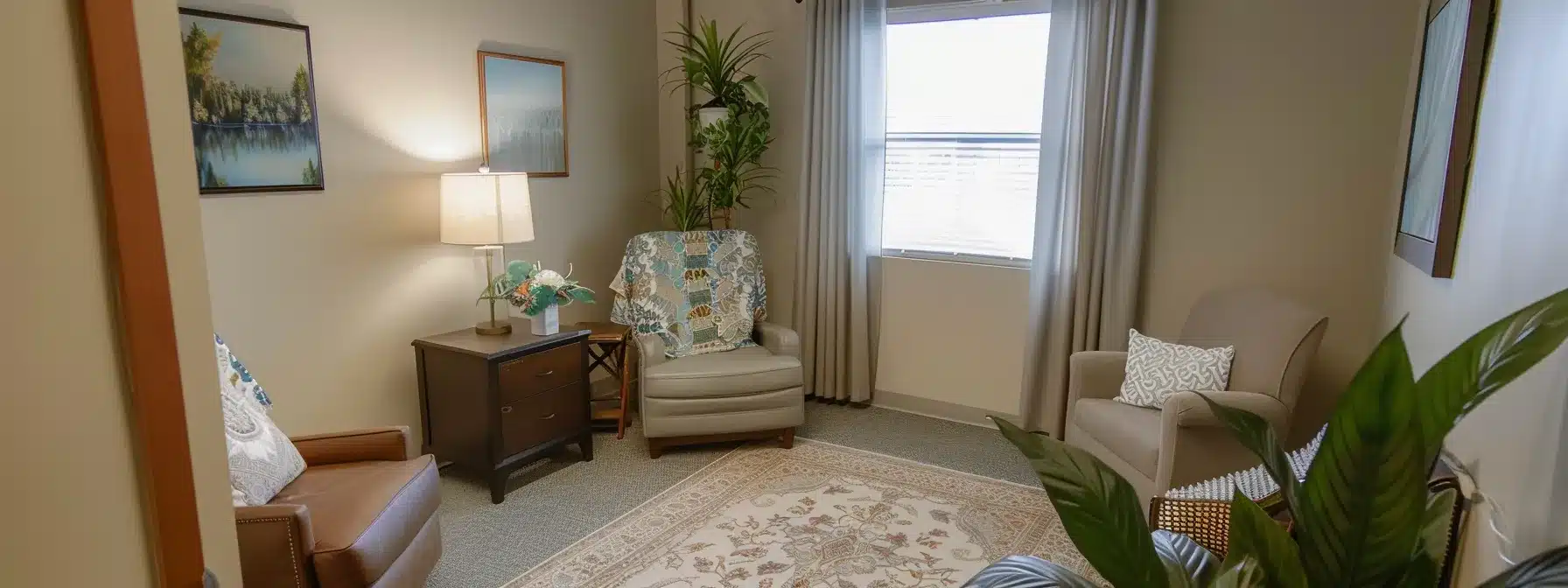Enhance Your Therapy Practice: Master Local SEO Tips for Therapists
Are you struggling to attract clients to your therapy practice? Many therapists overlook the power of local SEO, which is essential for connecting with those who need your services. In this article, we’ll explore how to optimize your Google Business Profile, enhance your website for local search visibility, and build citations that boost your presence in local directories. By mastering these local SEO tips, you’ll improve your mental health marketing and effectively address clients’ needs, helping you grow your practice and better serve your community.
Understanding the Role of Local SEO in Your Therapy Practice

Connecting with clients in your local area is vital for growing your therapy practice. Understanding the differences between local SEO and general SEO will help you target potential clients effectively. I’ll share statistics and best practices that highlight the benefits of local SEO, emphasizing how a well-optimized web design can elevate your visibility and attract more clients.
Connecting With Clients in Your Local Area
To connect effectively with clients in your local area, we need to leverage local SEO strategies that enhance the visibility of our counseling services. When potential clients search for therapy options using a mobile device, it’s crucial that our practice appears prominently in search engine results. Implementing a responsive web design and maintaining accurate citation listings across online directories can significantly improve our chances of being found by individuals seeking support in nearby locations.
Differences Between Local SEO and General SEO for Therapists
The main difference between local SEO and general SEO lies in their focus. While general SEO aims to improve overall rankings on search engines regardless of location, local SEO zeroes in on optimizing your practice for specific geographic areas. For example, if I specialize in couples therapy, implementing local SEO strategies ensures that my services appear in search results for individuals seeking therapy near them, thus increasing my visibility to potential patients in the community.
Benefits of Local SEO for Growing Your Practice
Implementing local SEO can significantly enhance my therapy practice by driving more traffic to my web page and improving my online reputation. When potential clients search for therapists in my area, a well-optimized presence ensures that I stand out, making it easier for them to find my services. Receiving positive feedback from clients not only boosts my visibility but also strengthens my credibility, creating a cycle where enhanced reputation leads to more client inquiries and ultimately a thriving practice.
Local SEO can be a game-changer for your therapy practice. Next, we’ll focus on how to optimize your Google Business Profile to attract more clients effectively.
Optimizing Your Google Business Profile for Therapists

Optimizing Your Google Business Profile for Therapists
Setting up an optimized Google Business Profile is key for therapists looking to enhance visibility. In the following sections, I will guide you through the steps to set up your profile, verify and update your practice information regularly, and the importance of adding engaging photos and service descriptions. These actions not only enhance navigation for potential clients but also help create a strong online community around your practice.
Setting Up Your Google Business Profile Step by Step
To set up my Google Business Profile effectively, I begin by creating an account and verifying my practice details. This includes using relevant keywords related to therapist SEO and mental health, ensuring that my profile appears in Google search results when potential clients are looking for therapy services in my area. I focus on providing accurate information such as my location, hours, and services offered, as this not only helps with visibility but also establishes trust with future clients seeking support.
Verifying and Updating Your Practice Information
Verifying and updating my practice information on my Google Business Profile is essential for attracting my target audience. Accurate details about my location, service hours, and offerings help reduce bounce rate by keeping potential clients engaged and informed. Regularly refreshing my web content, including descriptions and photos, ensures I capture the attention of individuals seeking therapy, ultimately leading to increased inquiries about my services.
| Action | Benefit |
|---|---|
| Verifying Location | Ensures clients can find my practice easily |
| Updating Hours | Prevents potential clients from reaching out when I’m unavailable |
| Refreshing Service Descriptions | Attracts attention with relevant offerings for my audience |
Adding Photos and Service Descriptions to Attract Clients
Adding engaging photos and detailed service descriptions to my Google Business Profile is crucial for attracting potential clients looking for a mental health counselor. Quality images of my clinic can create a welcoming environment, while informative descriptions about grief counseling and other services demonstrate my expertise and commitment. By optimizing my profile with relevant keywords, I enhance my visibility in local searches and attract clients who are actively seeking support through web applications and other resources I offer.
You’ve set up your Google Business Profile to be seen. Now, let’s turn our attention to your website, where local clients seek more than just words.
Enhancing Your Website for Local Search Visibility

In order to enhance my therapy practice’s local search visibility, I focus on three key strategies. First, I incorporate local keywords into my content, addressing topics like pain management and coping strategies for marriage issues. Next, I ensure that my website is mobile-friendly, aligning with clients’ needs. Lastly, I utilize schema markup specific to therapists to optimize my marketing plan and improve search engine rankings. These efforts collectively contribute to a stronger online presence that attracts the right clients.
Incorporating Local Keywords Into Your Content
Incorporating local keywords into my content is essential for enhancing my therapy practice’s local search visibility. By strategically using terms like “therapy services in [my city]” or “mental health support near me,” I can improve my chances of being found by individuals searching for help in their local area. Additionally, enhancing my Google Business listing with these keywords not only strengthens my presence but also aligns with link building strategies that establish me as a thought leader in the field, further attracting clients who may find value in my specialized services through mobile app searches.
Ensuring Your Website Is Mobile-Friendly
Ensuring my website is mobile-friendly is essential for improving my practice’s visibility as a mental health professional. With a significant portion of clients searching for therapy services on mobile devices, I prioritize optimizing my site to enhance user experience. A responsive design not only improves my ranking on search engine results pages but also integrates seamlessly with my Google Business Profile, making it easier for potential clients to access this crucial resource.
| Action | Benefit |
|---|---|
| Optimizing Website for Mobile | Enhances user experience for users searching for mental health services |
| Improving Site Speed | Reduces load times, keeping potential clients engaged |
| Responsive Design | Increases visibility on the search engine results page |
Utilizing Schema Markup Specific to Therapists
Utilizing schema markup specific to therapists is a strategic move that can enhance my practice’s online visibility significantly. By implementing structured data on my website, I can ensure that search engines understand my services better, from counseling to cognitive behavioral therapy. Additionally, showcasing testimonials and integrating relevant content from reputable sources like Psychology Today within my site can further elevate my search engine rankings, making it easier for potential clients to find me during their keyword research journey.
Your website can attract local clients, but that’s just the start. Now, let’s turn our attention to building and managing local citations and directories to strengthen your presence further.
Building and Managing Local Citations and Directories

Building and managing local citations and directories is a vital part of my marketing strategy for enhancing my therapy practice. Listing my practice on relevant online directories, such as Yellow Pages, ensures that potential clients can find me easily. Keeping my NAP (Name, Address, Phone) information consistent across platforms boosts my visibility in search engines. Additionally, leveraging community platforms and local associations allows me to connect with my audience and establish a stronger local presence.
Listing Your Practice on Relevant Online Directories
Listing my practice on relevant online directories is essential for improving my visibility in local search results. By ensuring my business appears on platforms like Yelp, Healthgrades, and local therapy directories, I create additional landing pages that drive traffic to my website. I focus on maintaining consistent NAP (Name, Address, Phone) information to avoid any confusion, steering clear of keyword stuffing, and instead using natural language that reflects my services effectively.
- Helps potential clients find my services easily.
- Enhances my local SEO marketing efforts.
- Improves overall online presence through diverse listings.
Keeping Your NAP (Name, Address, Phone) Information Consistent
Keeping your NAP (Name, Address, Phone) information consistent across all platforms is fundamental for effective search engine optimization in my therapy practice. Consistency allows clients searching for services like dialectical behavior therapy to find accurate details quickly, enhancing their trust in my practice. I use analytics to monitor where my information appears and adjust my social media profiles and directory listings to ensure everything aligns properly, thus reducing confusion and improving my overall online presence.
- Maintain up-to-date and accurate NAP information.
- Ensure consistency across all online platforms and directories.
- Utilize analytics to track visibility and engagement.
- Adjust social media profiles to reflect the correct information.
Leveraging Community Platforms and Local Associations
Leveraging community platforms and local associations is a strategic move I am committed to for enhancing my therapy practice’s visibility. By actively participating in local mental health events and joining professional organizations, I can create trust and signal to potential clients that I prioritize their well-being and confidentiality. This engagement not only fosters relationships within my community but also contributes to long-tail keyword strategies that improve my online usability, making it easier for those experiencing stress to find the support they need.
The best way to strengthen your local presence is through the voices of your clients. Their reviews can light the path to your next victory, drawing in new connections and solidifying trust.
Encouraging and Responding to Client Reviews

Requesting reviews from clients is a crucial strategy for enhancing my therapy practice’s online presence. I’ll discuss practical methods for encouraging feedback, along with the importance of responding professionally to all reviews. Additionally, I’ll highlight how effectively leveraging client testimonials can bolster my content strategy and social media marketing efforts, ultimately improving my practice’s reputation within the community.
Strategies for Requesting Reviews From Clients
To boost my therapy practice’s visibility, I actively seek reviews from my clients by creating a comfortable atmosphere where they feel encouraged to share their experiences. I often ask for feedback after sessions, highlighting the relevance of their insights to new clients who are searching for support. By integrating these testimonials into my online presence, I harness social proof that enhances user experience and reinforces my brand, making it clear that I value client satisfaction and input.
Responding Professionally to All Feedback
Responding professionally to all feedback is a key strategy for enhancing my therapy practice’s reputation and visibility. I make it a priority to acknowledge both positive and negative reviews with gratitude and sincerity, showing potential customers that I value their opinions. This behavior not only reflects my commitment to client satisfaction but also strengthens my credibility in the local community, potentially leading to partnerships with local organizations like the chamber of commerce:
- Prioritize acknowledgment of feedback.
- Show gratitude for positive reviews.
- Address negative feedback professionally.
- Strengthen community ties through effective communication.
- Enhance credibility with clients and local organizations.
Using Reviews to Enhance Your Practice’s Reputation
Leveraging client reviews is essential for enhancing my practice’s reputation as a trusted health professional. By encouraging clients to share their experiences, I can address user intent and demonstrate my commitment to ethics in treatment, particularly for sensitive issues like eating disorders. Responding thoughtfully to these reviews not only reinforces my credibility but also optimizes my visibility in voice search, as potential clients increasingly seek personalized recommendations based on real experiences.
Client reviews are a reflection of trust. Next, we will explore how to create local content that resonates deeply with your community.
Creating Engaging Local Content for Your Audience

Writing about local mental health topics, such as family therapy and psychotherapy, allows me to connect with my community effectively. Participating in community events and workshops not only helps raise awareness but also enhances my credibility. Additionally, collaborating with other local professionals and organizations can create valuable backlinks, improving my online presence while providing the right description of my services. Each of these strategies plays a vital role in establishing my therapy practice as a trusted resource in the area.
Writing About Local Mental Health Topics
Writing about local mental health topics allows me to not only connect with my clients but also establish my practice as a valuable resource in the community. By focusing on prevalent issues like anxiety management or family therapy, I create content that resonates with potential clients, addressing their specific concerns. Utilizing strategies from my Core Marketing System helps ensure that this content reaches those who need it most, enhancing my visibility while demonstrating my commitment to supporting mental wellness locally.
| Local Topic | Client Connection |
|---|---|
| Anxiety Management | Addresses common concerns and provides relatable insights |
| Family Therapy | Encourages discussions around relational issues |
| Coping Strategies | Offers practical tools for everyday challenges |
Participating in Community Events and Workshops
Participating in community events and workshops is an effective way for me to connect with potential clients while establishing my therapy practice as a trusted resource. Being present at these gatherings allows me to engage with individuals face-to-face, share valuable information about mental health topics, and foster relationships that can lead to client inquiries. I find that collaborations with local organizations not only increase my visibility but also position me as an authority within the community, enhancing my local SEO efforts as I create content around these experiences:
- Engage with the community through mental health workshops.
- Showcase your expertise in local events for better visibility.
- Develop relationships that can lead to client referrals.
Collaborating With Other Local Professionals and Organizations
Collaborating with other local professionals and organizations has been a game changer for my therapy practice. By partnering with nearby clinics, wellness centers, and community associations, I not only broaden my network but also create opportunities for workshops and joint events, which foster client engagement and awareness. These collaborative efforts enhance my local SEO by increasing backlinks to my website and positioning my practice as a trusted community resource, making it easier for potential clients to find the support they need locally.
Conclusion
Mastering local SEO is essential for therapists looking to connect with clients in their communities. By optimizing your online presence through effective Google Business Profiles, consistent NAP information, and engaging local content, you can significantly enhance your visibility and attract more clients. Taking actionable steps in implementing local SEO strategies establishes your practice as a trusted resource for those seeking support. Ultimately, prioritizing local SEO not only improves your practice’s reputation but also fosters lasting relationships within your community.
